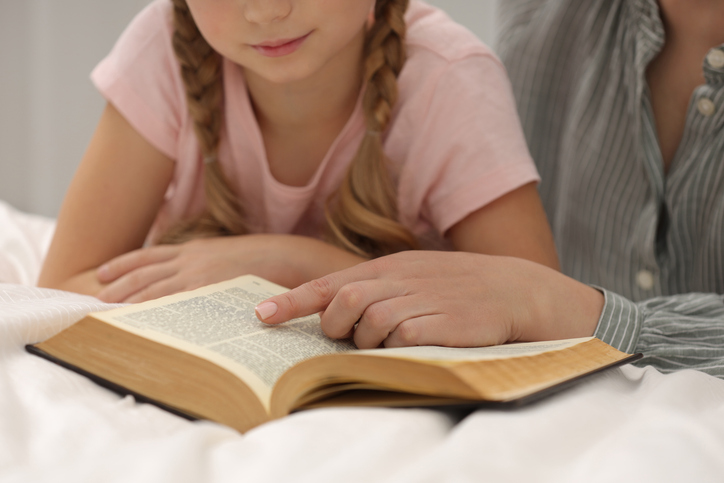Shakespeare, Dickens, JK Rowling: Britain’s literary heritage is undisputable. Creativity, emotional depth and universal values have ensured that Hamlet, Oliver Twist and Harry Potter are familiar to school children (and grown-ups) around the world. While other pillars of the proud national legacy – the BBC, the army, the NHS – have crumbled around us, we could still take pride in our peerless literary canon.
No longer. The National Literacy Trust, the very institution that should be protecting our literary heritage, is encouraging us to replace reading with audio. They have launched a campaign, #GrowAGenerationOfReaders, that risks pushing teachers and parents to supplant ‘traditional reading’ with audio. ‘Just one in three children and young people say they enjoy reading. But two in five say they enjoy audio.’ The charity’s hand-wringing sends out a clear message: as children are no longer in the habit of reading, let’s give up on books and grab airpods instead.
Literacy is in our cultural DNA
Teachers will confirm that schoolchildren are coming to school so unfamiliar with books, they will swipe, rather than turn, pages. It should surprise no one that children raised with phones in their pushchairs approach books much as earlier generations would have looked on scrolls: curious relics of a by-gone era.
To spot a child with their nose in a book, Hermione Granger-style, is now so rare that one teacher admits that a pupil caught in the act becomes a hot topic of conversation in the staff room. Schools, like many councils, are shutting down their libraries; while by law the nation’s prisons must have a library, as many as 15 per cent of primary schools don’t.
Instead of fighting this alarming trend, the National Literacy Trust would have us encourage it. Let children have their texts pre-masticated by an invisible voice, rather than encounter directly words and punctuation. Let the printed text become alien, hieroglyphics to an untutored eye. Let teens, already harmed by screen time and social media, allow books to gather dust while they burrow deeper into an unsavoury, sometimes downright dangerous online world. The airpods, phones, and laptops that boom out voices have earned the blessing of a charity established to support reading. Oracy will replace literacy rather than complement it.
And yet. The consequences of illiteracy are so well-evidenced that anyone, at least anyone who reads, will be familiar with them: poor grades, poor mental health, and the risk of unemployment in the long term. The stoking of imagination, an insight into the wider world, a greater understanding of what makes us all tick: the benefits of reading are also well proven, and prompted Michael Gove during his time as Education Secretary to write, ‘I want a culture in which the more you read, the more you are celebrated’ as he pushed reforms to the education system with a new emphasis on literacy.
Today, that legacy is under attack. This leaves only parents and teachers to fight for readers and reading. At Grace Coventry school, executive principal Natasha Whiles is already on side: ‘We know that literacy and poverty are linked – in our own secondary school, with 50 per cent pupil premium, we know that many of our students came from homes without books. Unsurprisingly we had a low literacy level. So our strategy was to put books in our children’s hands: we went around to local businesses, to charity shops, to anyone and everyone who would donate books and we set up shelves and shelves of books in our entrance hall. Anyone could come and take a book – “take it and love it or bring it back” was our policy.’ The strategy has worked, with Whiles reporting ‘a significant increase in our children’s literacy levels’.
Schools also can institute reading challenges, with a glittering (book token) prize to the winner, thus playing to every child’s competitive instinct. Primary teachers can invite parents into the classroom for a story book hour, or – as the charity Coram Beanstalk is doing – invite volunteers to read with those children who risk lagging behind in their literacy.
Parents can read bedtime stories every night with their younger children but also, invite the older ones to join in reading out loud from a book, taking up a different character, putting on a different voice, acting out a different role. Literacy is in our cultural DNA. So is – or at least was – grit. The National Literacy Trust has given up on both.







Comments